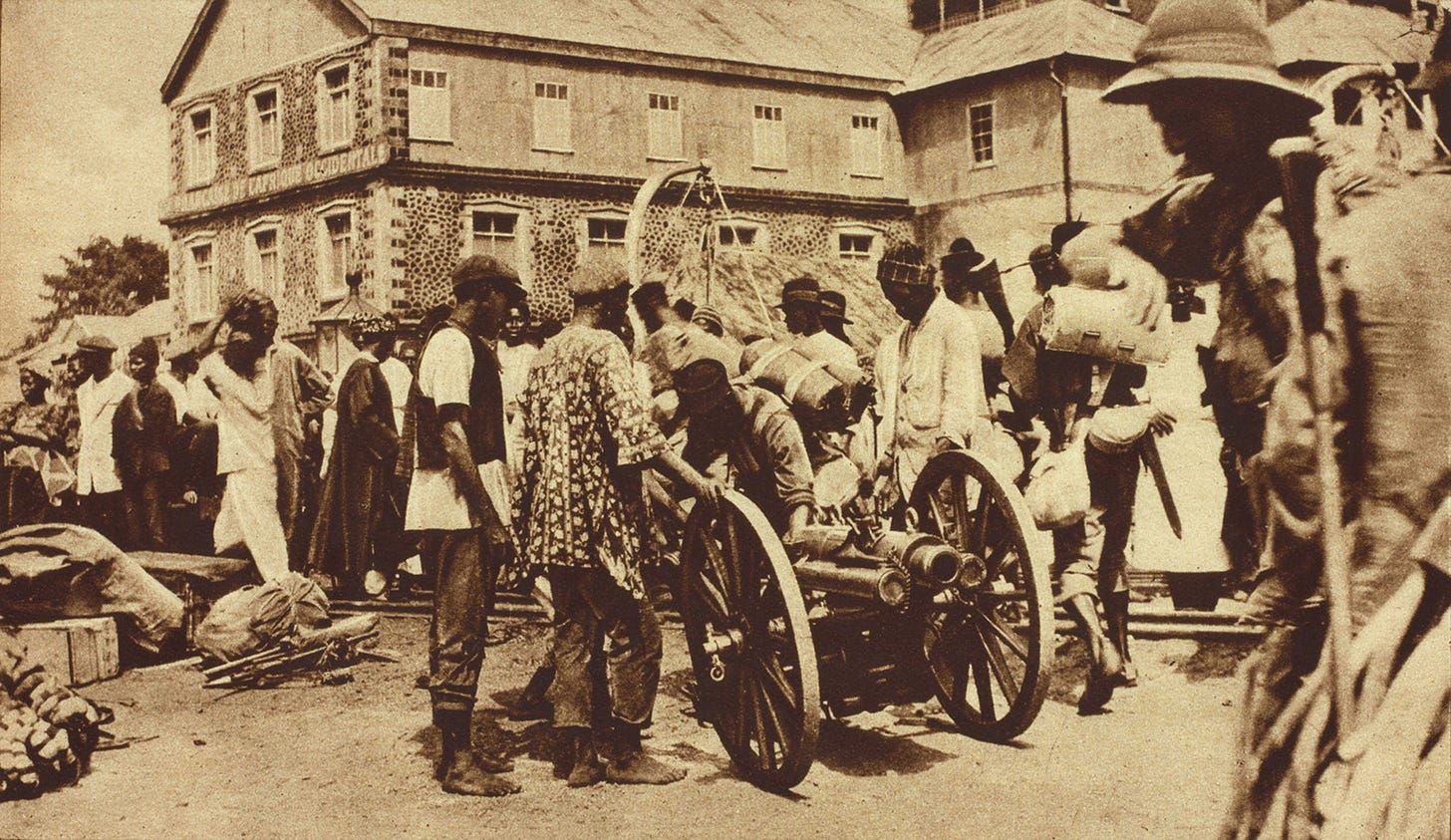It’s a saying as old as time: “get over it”.
Frustratingly yelled across pub tables to weeping friends healing from heartache, smoothly escaping the crimson red lips of femme fatals as they let you watch them walk away, or pompously exclaimed from a reddened face, when discussing racism.
Well, those are the only times I’ve heard it.
The latter being the main one.
Angry people are regularly told to get over the history of enslavement, colonialism and discrimination that has angered them. But more often than not, they are angry because history has tried to teach a lesson that people have not payed attention to — either out of ignorance or choice.
The history of enslavement, colonialism and discrimination is a story that should be left in history books. A history that is largely a construct of white settlers and imperialism.
And because we refuse to learn that very particular aspect of history, it is reflected in our every day actions.
White women scream slurs at Black women on the tube, continued immigration concerns such as the Windrush scandal has caused mental distress to Black Caribbeans, and Black boys are stopped and searched by the Met Police significantly more than their counterparts.
Colonialist mindsets are set on the belief that they have continued power over the countries they invaded, and therefore power of people from those countries. This is why the global North thinks the global South is underdeveloped, violent and poor.
This continues in places of authority — people of colour are discriminated against in healthcare, work and even relationships.
All because mindsets have been wired into believing people of colour are insignificant, unworthy, unruly.
So, when Suella writes a truly unreadable article about how we can not blame white people for racism, it forces us to ask one question: “are we determined to never learn from our mistakes?”
And pointedly to Suella: “are you ignorant to your own ancestors history?”
When we consider the effects of whiteness (the power system, not skin colour) on the lands it doesn’t originally inhabit, we can equate something like the invasion of Iraq to a colonial tactic. As many of us learnt soon after the invasion, it was less about protection and more about oil, money and power — something Winston Churchill made the British and US aware of, leading to the Iraq-Iran war of 1980.
This tactic is an attitude — ‘we can do what we want’ — and it has been the cause and effect of the suffering of millions.
But the point is, is this isn’t our history. It is our now.
Neocolonialism is the continued effect of colonisers on stolen land, once they have physically removed themselves. This can be seen in almost every aspect of our lives — a clear example of this is how yoga became a commodity. Taken from the land after invasion, bastardised and churned out of the capitalist wheel of fortune. None of which benefits the people from the land it originates.
I’m sure lululemon doesn’t pay reperations.
Another example is Sierra Leone.
Sierra Leone’s land is laden with diamonds, minerals, and oil that could enrich the indigenous people’s lives.
After the British left, Sierra Leone is still blocked from profiting from their own land by wealthy countries - such as the US and Japan. This control has furthered a spiral into an economical crisis; causing disease, war, poverty and child labour.
That is significant.
And to this day, colonialism still effects South Asians. Studies have shown that malnutrition from famines and poverty has meant South Asians are six times more likely to get diabetes than Europeans and are 40% more likely to die from a heart attack than the average population.
I’m going to say that again. Famine and poverty has meant South Asians are six times more likely to get diabetes.
Although there is some dispute as to whether the British Raj affected famines or simply the weather and geography of India — it is documented that colonial intentions of trade policies, export agriculture and neglect were driving factors in many of them.
So, what is a little guilt in the scheme of pain and suffering?
If history’s lesson is learnt, the outcome is guilt - the atrocities were unfathomable, and importantly, still are. Guilt for this is welcomed.
It creates change — no one likes guilt. In order to come out of it, a promise has to be made to yourself not to do it again.
Not to look down on people of colour, tell them to ‘get over it’, or to make assumptions on stereotypes.
Because although our world problems are more complex than race — I would say wealth is the biggest problem — race is almost always a factor.
And white people feeling guilt has brought change. We’ve seen school curriculums change and healthcare become more aware of its discrimination. Awareness has led to change and you can only be made aware when you are taken our of your comfort zone.
So, as always, ignore Suella.
A little guilt is okay.








